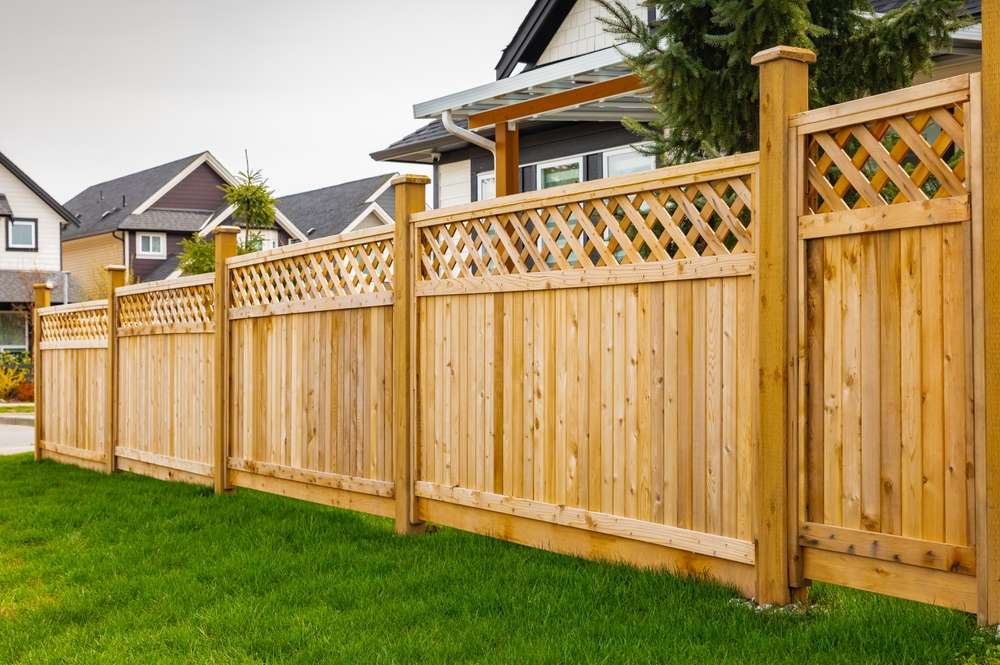Garden Fence Materials, Costs, and Selection Guide
Choosing the right garden fence involves considering multiple factors including materials, installation costs, privacy needs, and long-term maintenance requirements. Modern homeowners in Canada face numerous options ranging from traditional wood fencing to contemporary composite materials, each offering distinct advantages for different property types and budgets. Understanding these variables helps ensure your investment provides both immediate satisfaction and lasting value for your outdoor space.

Popular Garden Fence Materials and Their Characteristics
Wood remains the most versatile garden fencing material, with cedar, pine, and pressure-treated lumber leading Canadian preferences. Cedar naturally resists insects and weather damage, making it ideal for harsh climates, while pressure-treated pine offers affordability with decent durability. Vinyl fencing has gained popularity due to its low maintenance requirements and consistent appearance over time, though initial costs run higher than traditional wood options.
Metal fencing options include aluminum, steel, and wrought iron, each serving different aesthetic and functional purposes. Aluminum provides lightweight durability with minimal corrosion concerns, while steel offers maximum security and longevity. Composite materials blend recycled wood fibers with plastic polymers, creating weather-resistant panels that mimic natural wood grain without requiring regular staining or sealing treatments.
Installation Costs and Budget Considerations
Garden fence installation costs vary significantly based on material choice, property size, and site conditions. Linear foot pricing typically ranges from $15-25 for basic wood fencing, $25-40 for vinyl options, and $30-60 for premium materials like composite or ornamental metal. These estimates include standard installation on level ground with minimal obstacles or special requirements.
Additional cost factors include permit requirements, which vary by municipality but typically range from $50-200 for residential fencing projects. Site preparation, including ground leveling or obstacle removal, can add $5-15 per linear foot to overall project costs. Professional installation generally costs 40-60% of total project budgets, though DIY approaches can reduce expenses for homeowners with appropriate tools and experience.
| Material Type | Cost Per Linear Foot | Installation Difficulty | Lifespan (Years) |
|---|---|---|---|
| Pressure-Treated Pine | $15-22 | Moderate | 10-15 |
| Cedar Wood | $20-30 | Moderate | 15-20 |
| Vinyl Fencing | $25-40 | Easy-Moderate | 20-30 |
| Composite Materials | $35-50 | Moderate | 25-35 |
| Aluminum | $30-45 | Moderate-Difficult | 30+ |
Prices, rates, or cost estimates mentioned in this article are based on the latest available information but may change over time. Independent research is advised before making financial decisions.
Effective Fencing Solutions for Privacy Enhancement
Privacy fencing typically requires heights of 6-8 feet with minimal gaps between boards or panels. Solid wood panels, vinyl privacy screens, and composite materials provide excellent visual barriers while maintaining attractive appearances from both property sides. Strategic placement considerations include prevailing wind directions, which affect both structural integrity and noise reduction capabilities.
Lattice-top designs offer compromise solutions, providing privacy at eye level while maintaining airflow and reducing wind load on fence structures. Living privacy screens using fast-growing hedge plants like cedar, privet, or bamboo can supplement lower fencing while creating natural barriers that improve over time. These hybrid approaches often prove more cost-effective than tall solid fencing while providing enhanced aesthetic appeal.
Essential Factors for Garden Fence Selection
Property boundaries and municipal regulations significantly influence fencing decisions, with most Canadian communities requiring permits for fences exceeding specific heights. Soil conditions affect foundation requirements, particularly in areas with clay soil or significant frost penetration that demands deeper post installations. Maintenance preferences should align with material choices, as some options require annual treatments while others need only occasional cleaning.
Aesthetic compatibility with existing landscaping and home architecture ensures cohesive property appearance. Consider long-term property plans, including potential additions or landscape modifications that might affect fencing placement or style preferences. Climate factors like heavy snow loads, strong winds, or significant temperature fluctuations influence material performance and structural requirements for different regions across Canada.
Maintenance Strategies for Long-Term Fence Durability
Regular inspection schedules help identify potential issues before they become expensive repairs. Wood fencing benefits from annual cleaning and staining or sealing every 2-3 years, depending on exposure conditions and climate factors. Vinyl and composite materials typically require only periodic cleaning with mild detergent solutions and occasional inspection of connection points and hardware.
Metal fencing maintenance focuses on preventing rust and corrosion through protective coating applications and prompt repair of scratches or damage. Gate hardware represents common failure points requiring regular lubrication and adjustment to maintain smooth operation. Vegetation management prevents root damage to fence foundations while maintaining proper drainage around post installations to prevent premature deterioration.
Garden fencing represents a significant investment in property improvement, requiring careful consideration of materials, costs, and maintenance requirements. Successful projects balance immediate budget constraints with long-term durability expectations while meeting specific privacy and aesthetic goals. Professional consultation can provide valuable insights for complex installations or challenging site conditions, ensuring optimal results for your specific property needs.



